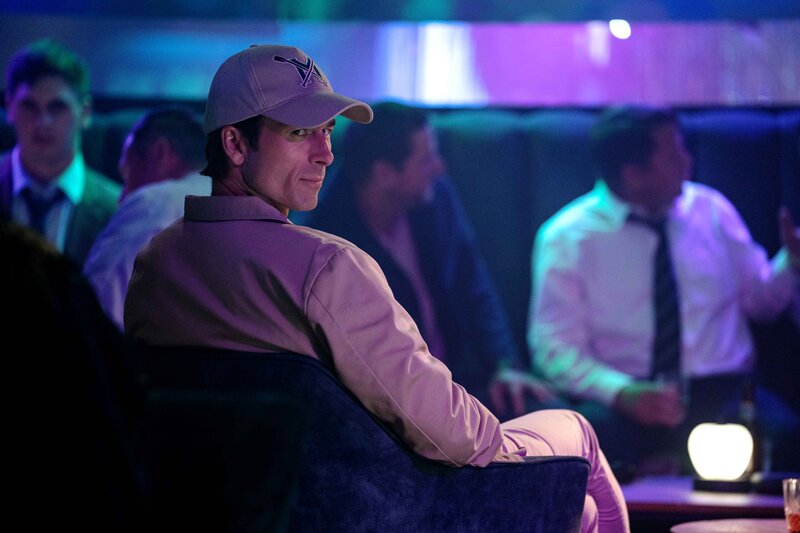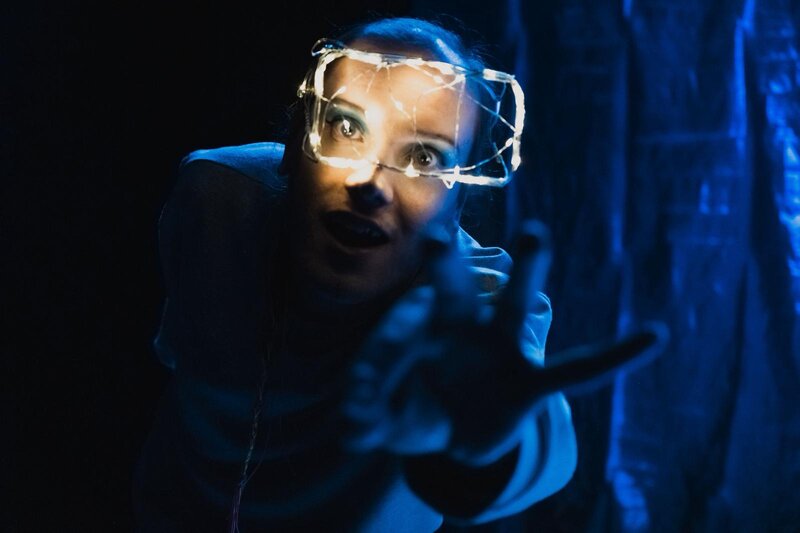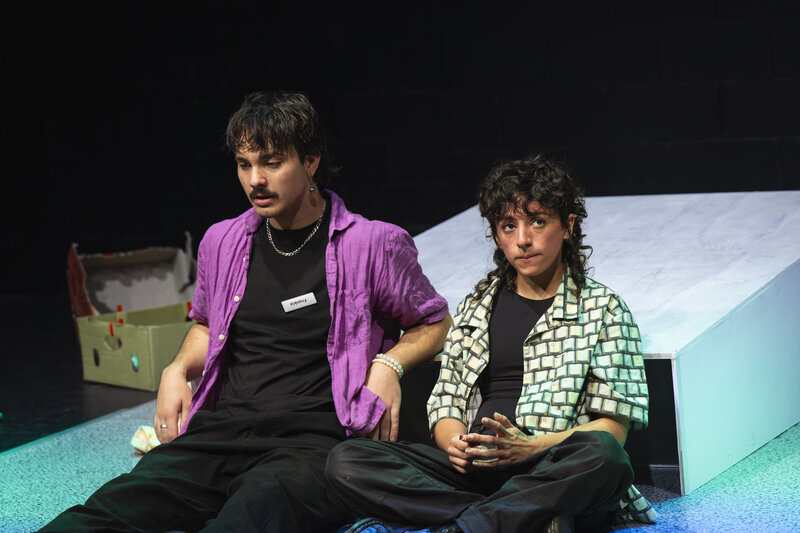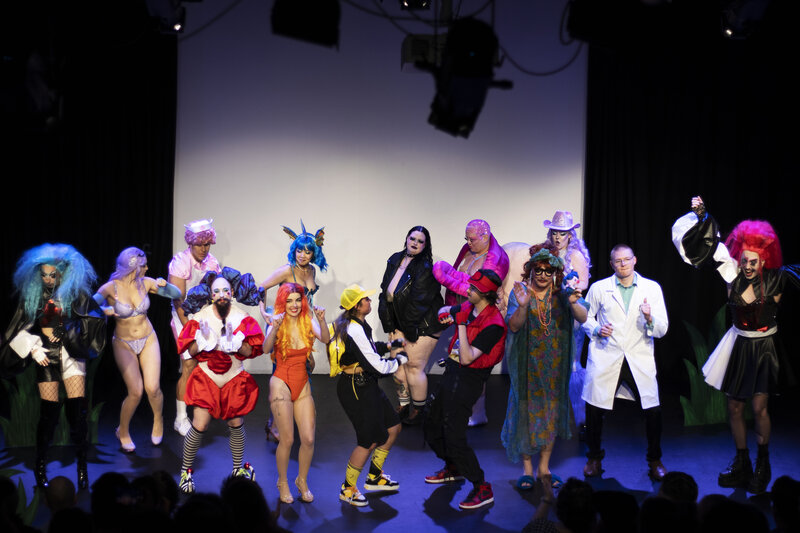A social media shout out to those willing to tell their stories about abortion has let to a naturalistic expose on the subject from the perspective of both sexes. The creators – Carolyn Dawes and Fiona Scarlett – initially interviewed 13 people who responded to a Facebook post in conversations that lasted from half an hour to two hours. They audio-recorded many of those discussions (other were done in written form – Q and A style), which – in essence – were about “unloading”. Then they took the words those involved used and infused them into this piece to create theatre verite.
Being such a “hot” topic, fused with emotion and morality, makes it ideal material for coverage by The Owl and Cat. While several of those they talked to have no regrets or felt they had no alternative due to their circumstances, there are those who continue to live with the “guilt” and “heartache” of having a termination decades later.
 Choice is staged as theatre in the round or, more accurately, theatre in the square. It is set in the waiting room of an abortion clinic. When the play starts, the actors are flipping through magazines. Two are positioned on black stools in the middle of the room and the others sit alongside the audience. The room is bare save for three prints on the walls. And then they begin to elucidate their experiences and express their views about what they did and the significance of the event then and now. Some of it is delivered in oratory lasting several minutes, others in literally seconds, one conversation punctuated by another and then another.
Choice is staged as theatre in the round or, more accurately, theatre in the square. It is set in the waiting room of an abortion clinic. When the play starts, the actors are flipping through magazines. Two are positioned on black stools in the middle of the room and the others sit alongside the audience. The room is bare save for three prints on the walls. And then they begin to elucidate their experiences and express their views about what they did and the significance of the event then and now. Some of it is delivered in oratory lasting several minutes, others in literally seconds, one conversation punctuated by another and then another.
One (played by Clancy Fraser) got pregnant to “a French boy” while on an exchange program when she was still studying. At the time, she had no money and no job. Describing the experience as “one of the worst things I have ever gone through”, she called herself “careless and stupid and silly”. After the abortion, she cried a lot, felt anger at the protestors outside the clinic and ate for the first time in a month. She told the guy who knocked her up, but he didn’t ask how she was feeling until three days later and that stayed with her. A second (Gemma Flannery) was a 16-year-old who attended a Catholic college in Canberra, totally in love with her first boyfriend. They’d been together for three months when she found out that she was 10 weeks pregnant. While her parents were supportive of “the procedure” they made sure she cut off all contact with “the boy”. Abortion was illegal at the time and she felt guilt and shame and, afterwards, relief. But, all these years later, she still feels bad “about how everything was handled”.
The third story concerns the daughter (Victoria Haslam) of Salvation Army ministers, who didn’t want to bring shame upon them. She was in a really bad place at the time, never told the guy whom she had sex with what happened and subsequently found out that as much as she may have wanted to, she couldn’t get pregnant again. The partner (Ryan Sliwinski) of a woman was “secretly excited” when she told him she was pregnant, but try as he did, he couldn’t convince her to have the baby. He said they did “lots of talking” but that the “conversations were strained”. Today, he still feels “hurt” about what went down. Another woman (Fiona Scarlett) giggled her way through a description of what she went through, all but trivialising the experience. That I took to be her way of “coping”. And, finally, there was the male friend (Ben Santamaria) of a “goth” who observed how badly her partner treated her, but still tried to talk her out of getting rid of “it”.
 I was full of admiration for how this slice of verbatim theatre came to be. Dawes, Scarlett and the co-owner of The Owl and Cat, Gabrielle Savrone, were talking about the fact that in 2016 there is still a stigma surrounding abortion. They got themselves “a little worked up about the fact” and Choice emerged from there. While I was certainly involved in what I was seeing, I found it difficult to remember all six stories and their aftermath. I would have preferred the piece to delve deeper into a smaller number and thereby develop a greater affinity with the protagonists and circumstances involved.
I was full of admiration for how this slice of verbatim theatre came to be. Dawes, Scarlett and the co-owner of The Owl and Cat, Gabrielle Savrone, were talking about the fact that in 2016 there is still a stigma surrounding abortion. They got themselves “a little worked up about the fact” and Choice emerged from there. While I was certainly involved in what I was seeing, I found it difficult to remember all six stories and their aftermath. I would have preferred the piece to delve deeper into a smaller number and thereby develop a greater affinity with the protagonists and circumstances involved.
Director Carolyn Dawes clearly didn’t set out to create a heightened reality – quite the opposite, in fact – and yet I would have liked a bigger contrast and differentiation between stories, with more drama and pathos. Nevertheless, Choice is well acted and executed, if not quite as affecting, indeed, as “traumatising”, as I had hoped it would be upon entering the theatre. Still, I was particularly keen to talk about it and the subject afterwards, so it is not as if it didn’t have any impact. One hour without interval, Choice is on at the Owl and Cat until 25 November 2016.
Alex First

David Edwards is the former editor of The Blurb and a contributor on film and television




